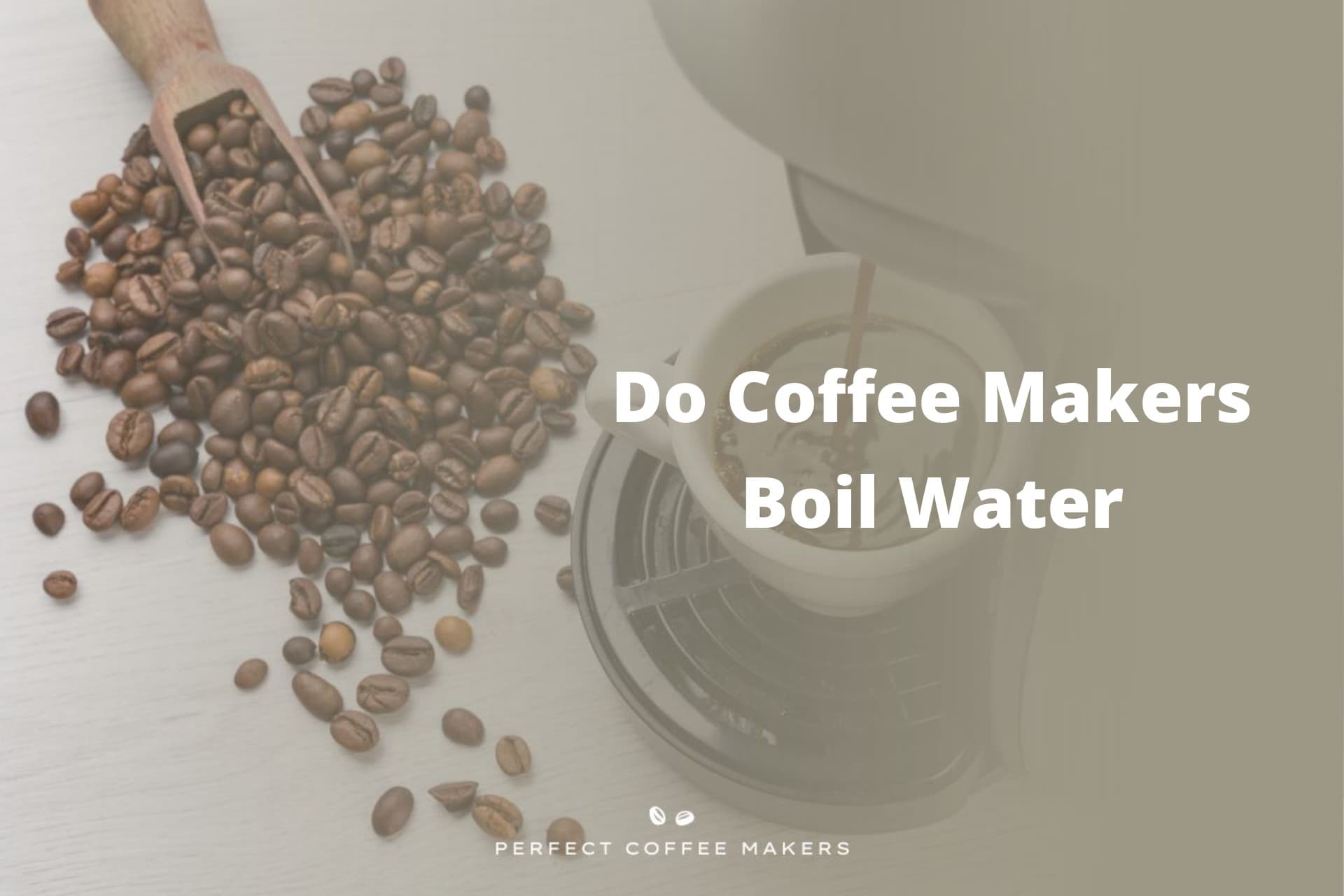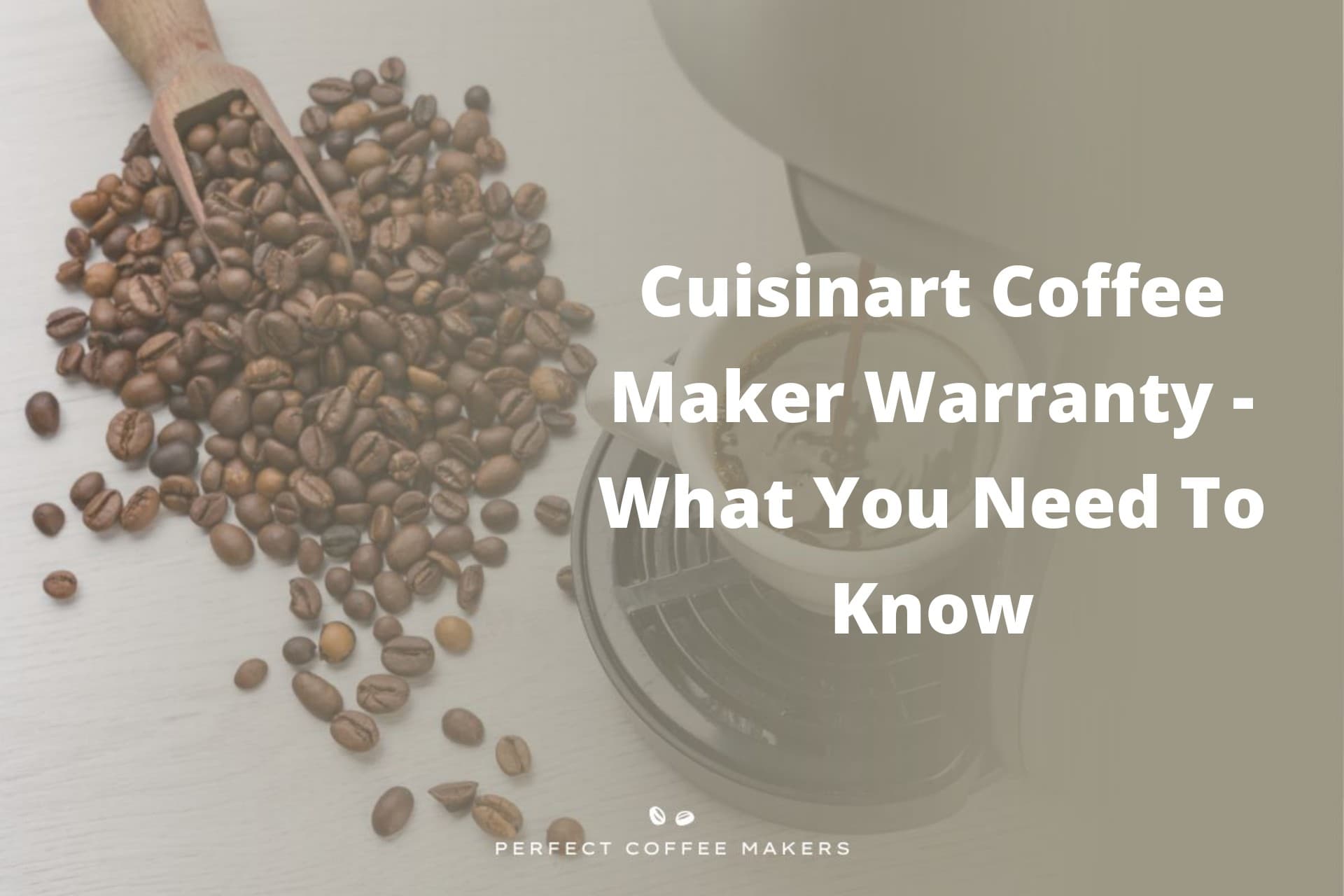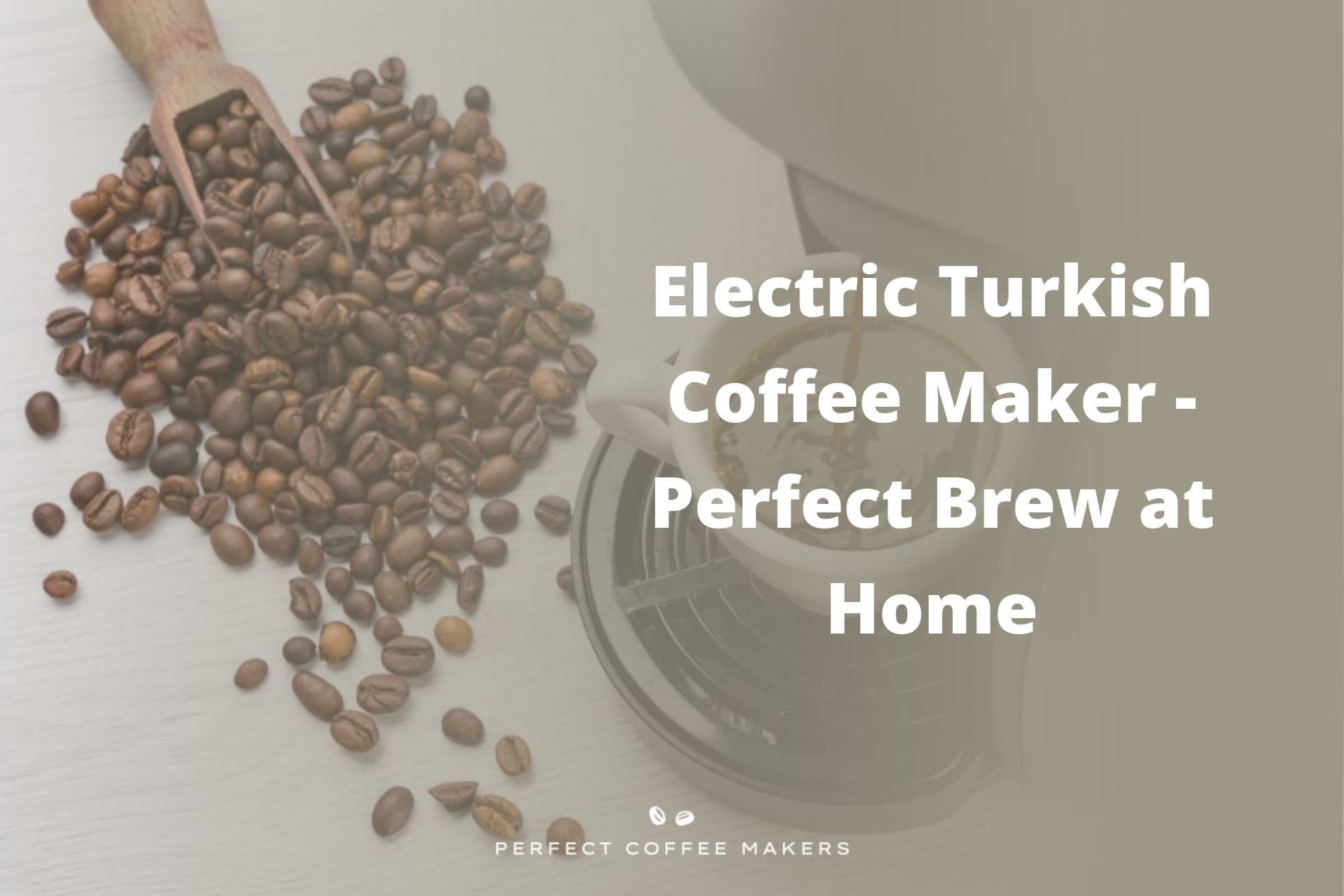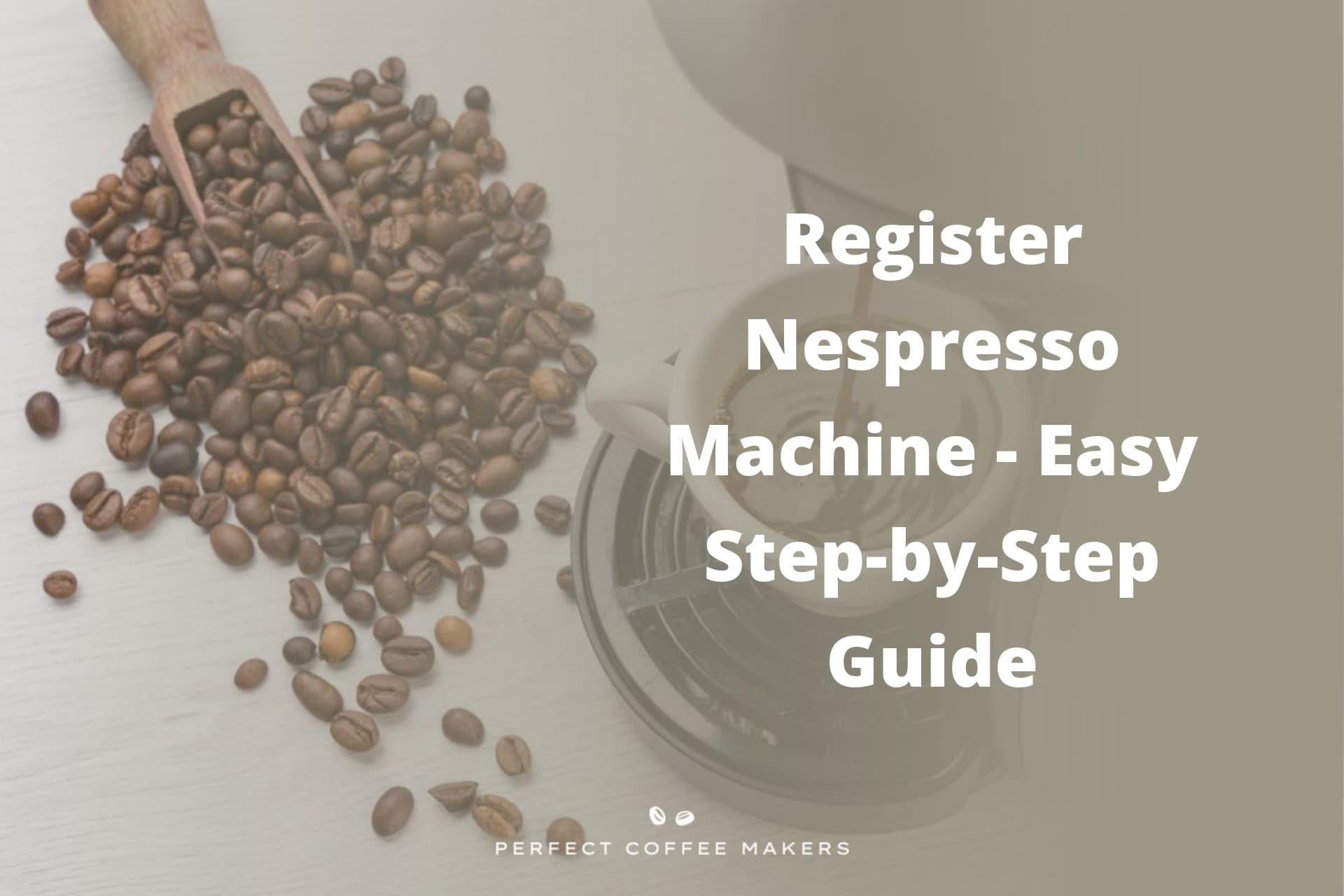The morning ritual of making a cup of coffee is a cherished routine for many of us. But, have you ever wondered if your coffee maker could serve another purpose? Perhaps as a kettle to boil water? It’s not an uncommon thought, especially when you’re in a pinch or when your kettle is out of service.
Coffee makers can indeed boil water. The heating element in most coffee makers is designed to heat water to the perfect temperature for brewing coffee, which is typically around 200 degrees Fahrenheit (93.3 degrees Celsius), very close to the boiling point of water. So, if you ever need hot water for tea or a recipe and your stove or kettle isn’t available, you can use your coffee maker in a pinch.
However, this brings us to a host of other interesting questions and possibilities. What other unconventional uses does a coffee maker hold? Can it be used to make something other than coffee? Or could it double up as a steamer for your veggies perhaps? If these questions pique your curiosity, stick around! As we continue to explore these possibilities, you might just discover that your trusty coffee maker is even more versatile than you imagined.
How Coffee Makers Heat Water for Brewing
Espresso machines use various methods to boil water and ensure a piping hot cup of joe. These coffee makers are designed specifically to extract the flavor from finely ground coffee grounds. Let’s explore how these machines heat the water:
- Espresso machines use heating elements to boil water and produce the perfect cup of coffee from finely ground beans. These elements, such as the coffee machine and stovetop coffee maker, act as the heat source, ensuring that the water in the coffee pot reaches the desired temperature to boil.
- Some espresso machines come equipped with internal tanks that hold and boil the water. These coffee machines tanks maintain a constant supply of hot water ready for brewing in the coffee pot or countertop coffee maker, also known as a drip coffee maker.
- Espresso machines: On the other hand, certain espresso machines have tubes that carry cold water through a heating element to boil. As the cold water passes through the coffee machine, it gets heated up before being used to boil the coffee grounds for brewing espresso.
- Variety of Methods: The heating process can vary depending on the type of coffee machine you use, whether it’s a machine that boils water or a machine that uses other methods. For example:
- Stovetop Coffee Makers: Stovetop coffee makers rely on direct heat from a stovetop burner or an open flame to boil and warm up the water using a machine.
- Drip Coffee Makers: Drip coffee machines typically feature a combination of internal tanks and heating elements to ensure consistent hot water throughout the brewing cycle. The machine uses heat to boil the water, ensuring a consistent temperature for brewing.
Coffee makers, whether they are machines or stovetops, have their unique ways of boiling water, using internal tanks, tube systems, or direct heat sources. Understanding how your specific coffee machine heats its water can help you appreciate its functionality and enjoy a perfectly brewed cup every time!
The Optimal Temperature for Brewing in Coffee Makers
To brew a perfect cup of coffee, the boiling water temperature plays a crucial role. Using a machine to boil water is essential for achieving the best results. Here’s what you need to know:
- The ideal temperature range for brewing coffee is between 195°F and 205°F (90°C – 96°C). To achieve this, it is important to use a machine that can boil water at the right temperature. This specific range allows for optimal extraction of flavors from the coffee grounds by using boiling water.
- When the water temperature is too low, below 195°F (90°C), the coffee may taste weak and lack depth because it did not boil. On the other hand, if the water temperature exceeds 205°F (96°C) when brewing coffee, it can lead to over-extraction and bitterness.
- Modern coffee makers are designed to boil water and reach and maintain this optimal temperature throughout the brewing process. They ensure that your coffee is brewed at just the right temperature consistently by using a method to boil water.
- Boiling water at the correct temperature enhances the taste of your coffee by extracting all those delightful flavors locked within the beans.
- It’s worth noting that using room temperature or lukewarm water won’t be sufficient for brewing that perfect cup of coffee. The temperature is crucial, just like the quality of the coffee grounds and the coffee machine you use. The water in the coffee machine needs to be heated to an appropriate brewing temperature.
So, when you’re using your coffee maker, make sure it heats the water within this recommended range. By doing so, you’ll be able to savor every sip of your carefully brewed water coffee.
Remember: when using a coffee machine, it’s all about finding that sweet spot where the water temperature reaches its full potential. Whether you’re measuring in degrees Fahrenheit (°F) or degrees Celsius (°C), make sure to find the right temperature for your brew.
Using a Coffee Maker to Boil Water: Safety and Effects
- While some coffee makers can bring water close to boiling point, they are not designed to fully boil it.
- Attempting to boil water in a regular drip-style coffee maker may cause damage or pose safety risks.
- Boiling water in a coffee machine, such as a French press or percolator, is more suitable due to their design and materials used.
- When using your specific type of coffee maker, it is crucial to follow the manufacturer instructions, especially when it comes to adding water.
Coffee makers are a convenient way to enjoy a hot cup of joe, but can they be used to boil water? Let’s explore the safety and effects of using a coffee maker for brewing water.
While some coffee makers have the ability to heat water close to its boiling point, they are not intended for full-on boiling. The heating elements in these machines are typically designed to reach temperatures below boiling, ensuring optimal brewing conditions for your morning brew. These machines use water to create the perfect cup of coffee. Attempting to force a regular drip-style coffee maker into boiling water may result in damage or even pose safety risks.
If you’re looking to boil water using your coffee maker, alternative options like French presses or percolators would be more suitable. These coffee machines are specifically designed with features that allow them to handle the high temperatures required for boiling water. Their sturdy construction and heat-resistant materials make them better equipped for tasks involving water, such as using a coffee machine.
To ensure safe usage of any type of coffee maker, it is crucial to carefully follow the manufacturer’s instructions, especially when it comes to using water. Each coffee machine model has its own specifications and recommendations for water that should be adhered to. This will not only protect your machine from potential water damage but also guarantee your personal safety while operating it near water.
Can Coffee Makers Kill Bacteria in Water?
Coffee makers and water bacteria, let’s get straight to the point. Here’s what you need to know:
- Coffee makers don’t reach high enough temperatures to kill bacteria found in tap water.
- To reduce bacteria, consider boiling water separately before pouring it into the coffee maker reservoir.
- For safer drinking water, it’s recommended to use filtered or bottled water instead of relying solely on coffee makers.
- Keep your coffee maker clean and hygienic by regularly cleaning and descaling it with water.
While coffee makers may not be able to eliminate all the bacteria lurking in your tap water, there are steps you can take to minimize the risk. Boiling water beforehand can help kill off some bacteria before brewing your favorite cup of coffee using a coffee machine. Using filtered or bottled water as a base for your coffee can provide an extra layer of protection against harmful microorganisms.
Ensuring that your coffee maker remains clean and free from any build-up is crucial for maintaining the quality of your coffee. Regular cleaning with water is recommended to prevent any residue or impurities from affecting the taste of your brew. Regularly cleaning and descaling your water machine not only helps maintain its performance but also reduces the chances of bacterial buildup in the water. By taking these simple precautions, you can enjoy a cup of coffee that is cleaner and safer for consumption. These precautions include being mindful of the quality of the water used in your coffee preparation.
Exploring Stove Top Kettles as an Alternative
Stove top kettles have long been a traditional method for boiling water on the stovetop, but with the rise of coffee machines, their popularity has declined. Unlike coffee makers, water boilers offer more control over the boiling process, allowing you to achieve the perfect temperature for your hot beverages.
One of the advantages of using a stove top kettle is its versatility when boiling water. While coffee makers are designed specifically for brewing coffee, stove top kettles can be used to prepare various hot beverages such as tea, hot chocolate, or even soups and broths. Additionally, stove top kettles are also great for boiling water. This makes them a reliable option for those who prefer to boil water separately from their coffee maker.
Stove top kettles, designed for heating water, come in various types such as moka pots and percolators, each with its own distinctive features and benefits. They typically consist of a pot with a filter basket or sieve plate to separate any residue from the boiled water. This ensures that your hot beverages are free from unwanted particles, resulting in cleaner flavors and better quality water.
If you enjoy delicate flavors or want to explore different recipes that require precise water temperatures, a stove top kettle is an excellent choice. With its manual control and direct heat source on the stovetop or hot plate, you can adjust the intensity of heat according to your preference for boiling water.
Understanding the Role of Coffee Makers
Now that you have a better understanding of how coffee makers work and how they heat water for brewing, you can confidently make your morning cup of joe. Coffee makers are designed to efficiently heat water to the optimal temperature for extracting the flavors from your coffee grounds. They may not technically boil the water, but they bring it close enough to ensure a delicious brew every time.
So next time you’re craving that perfect cup of coffee, remember that your trusty coffee maker, with its ability to efficiently heat water, is there to help you out. Whether you prefer a traditional drip machine or a more advanced espresso maker, these appliances play a crucial role in creating that satisfying morning ritual. They ensure the perfect balance of water for your preferred coffee brewing method. So go ahead, fire up your coffee maker and enjoy the rich aroma and taste of freshly brewed coffee! Don’t forget to use clean water for the best results.
FAQs
Can I use my coffee maker to heat other liquids?
Yes, you can use your coffee maker to heat other liquids besides water. However, it’s important to note that some liquids, such as water, may leave residue or alter the taste of future brews if not thoroughly cleaned afterwards.
How often should I clean my coffee maker?
To maintain optimal performance and flavor in your brewed coffee, it’s recommended to clean your coffee maker with water at least once a month. Follow the manufacturer’s instructions for specific cleaning procedures.
Can I use my coffee maker without any filters?
Yes, most modern coffee makers come with reusable or permanent filters that eliminate the need for disposable paper filters. These filters are designed to remove impurities and provide a clean taste to your water. However, using paper filters can help enhance the clarity and cleanliness of your final brew by filtering impurities from the water.
What is the ideal brewing temperature for coffee?
The ideal brewing temperature for most coffees falls between 195°F (90°C) and 205°F (96°C) to ensure the best extraction of flavor from the water. This range allows for proper extraction of water flavors without scorching or under-extracting the beans.
How long does it take for a typical drip coffee maker to brew?
On average, a drip-style coffee maker takes around 5 to 7 minutes to brew a full pot of coffee with water. However, brewing time may vary depending on the size of the machine and the desired strength of your brew.




